When robots and AI will deserve human rights?
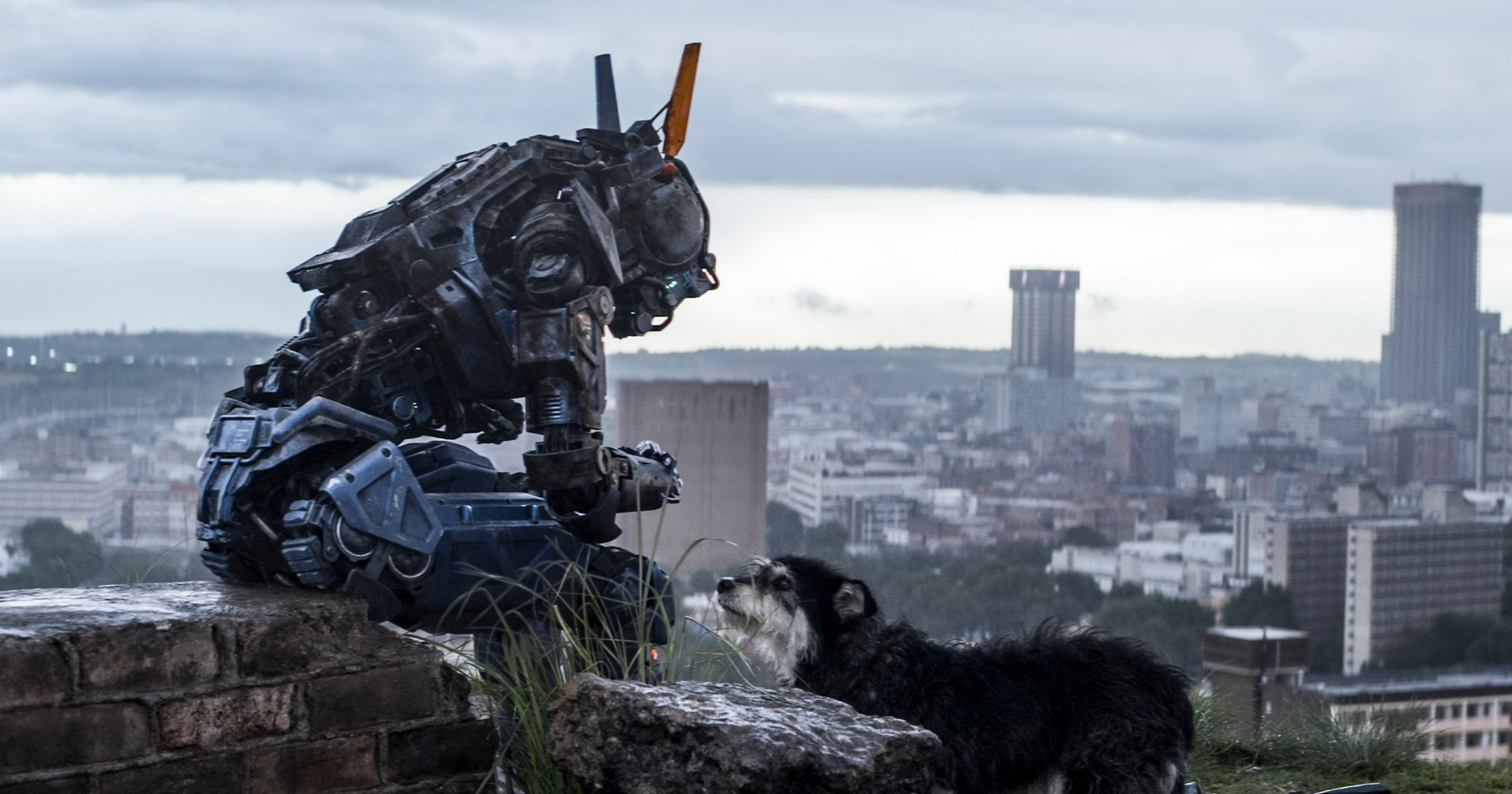 Source:
Source:
Such films and TV series as "blade Runner", "People" and "the Wild West", where we show the high-tech robots with no rights, can not disturb people with a conscience. Because they not only show our extremely aggressive attitude towards robots, they actually shame us as a species. We all used to think that we are better than those characters that we see on the screen, and when the time comes, we will make the right conclusions and act with reasonable machines with greater respect and dignity.
With every step of progress in robotics and the development of artificial intelligence we're getting closer to the day when machines will match human capabilities in every single aspect – intelligence, consciousness and emotions. When that happens, we have to solve is before us is item level of the refrigerator or identity. And should we give them the equivalent of human rights, freedoms and protection.
This issue is very vast and to understand it will not work even at all desire. It will have to consider and decide on from from many different points of view — ethics, sociology, law, neurobiology and the theory of AI. But for some reason now does not seem that all these parties come to a common, mutually acceptable conclusion.
theWhy bother to give AI rights?
First, you need to recognize that we are already inclined towards morality, when we see robots, much like us. The more intellectually developed and "alive" look of the car, the more we want to believe that they like us, even if it is not.
As soon As the machine receives a basic human capacity, whether we like it or not, we have to look at them as a social equal and not just as a thing, like on someone's private property. The difficulty will be to our understanding of cognitive characteristics or traits if you want, which can be assessed in front of us the essence from the standpoint of morality and hence to consider the issue of social rights of the entity. Philosophers and ethicists are struggling with this problem for thousands of years.
"there are three most important ethical threshold value: the ability to experience pain and empathy, self-awareness and the ability to see things from the point of view of morality and to take appropriate decisions," — says sociologist, futurist, and head of the Institute for ethics and emerging technologies, James Hughes.
"the people if are lucky, all three of these undoubtedly important aspects develop sequentially and progressively. And what if from the point of view of machine intelligence will be assumed that the robot does not self-aware, not experiencing joy or pain, also has the right to be called a citizen? We need to find out whether it will take place".
It is Important to understand that intelligence, sensibility (the ability to perceive and feel things), consciousness and self-awareness (awareness of itself in contrast to another) are completely different things. Machines or algorithms can be just as smart (if not smarter) as people, but devoid of these three important components. Calculators, Siri, exchange algorithms, they are certainly smart, but they are not able to realize themselves, they are not able to feel, to emote, to feel the colors, the taste of the popcorn.
According to Hughes, self-realization can be associated with the vesting entity the minimum personal rights such as the right to be free, not a slave, the right to own interests in life, the right to growth and self-improvement. The acquisition of self-realization and morality (the ability to distinguish "what is good and what is bad" according to the moral principles of modern society) this entity should be granted full human rights: the right to conclude agreements, the right to own property, vote and so on.
"the Main value of the Enlightenment compels us to consider these features with the position of the equality of all in front of everyone, refuse radically conservative views that were commonly accepted before, and endowed them with rights, say, only people of a certain social, gender or regional affiliation," — said Hughes.
Obviously, our civilization has not yet achieved a high social goals, since we still can't sort out their own rights and are still trying to expand them.
theWho may be called a "personality"?
All men are persons but not all persons are human. Linda MacDonald-Glenn, bioethicist, University of California Monterey Bay and a lecturer at the Institute of bioethics of aldena Mar Medical center Albany says that in the law there are already precedents for entities that do not belong to the human race, considered as subjects of law. And that, in her opinion, a great achievement, as we thereby pave the way to open the possibility of giving the AI in the future private rights is equivalent to human.
"In the US, all corporations have the status of legal entity. In other countries, too, there are precedents in which try to recognize the interconnectedness and equality of all living things on this planet. For example, in New Zealand at the legislative level, all animals are considered sentient beings, and the government actively encourages the development of codes of welfare and ethical behaviour. Supreme court of India called the Ganges river and Yamuna "living beings" and gave them the status of separate legal persons".
In addition, in the US, like other countries, the subjects of extended rights for protection from incarceration, experimentation, and abuse are some species of animals, including great apes, elephants, whales and dolphins. But unlike the first two cases, where the person want to take of the Corporation and of the river, the question of animals does not seem to attempt the subjugation of the legal rules. Supporters of these proposals for support that is a real person, that is, of the individual, which can be characterized on the basis of certain cognitive (mental) abilities such as consciousness.
MacDonald-Glenn says that it is important to abandon the conservative look and stop to consider, whether animal or AI, is a simple soulless creatures and machines. Emotions are not a luxury, says bioethicist, and an integral part of rational thinking and the norms of social behavior. It is these characteristics and not the ability to count numbers, must play a decisive importance in solving the question of "who" or "what" should be eligible for moral evaluation.
In science, there is increasing evidence of the emotional predisposition in animals. The observation of dolphins and whales shows that they are able at least to show sadness, and the presence of spindle cells (interneurons, connecting distant neurons, and involved in complex processes that trigger social behavior) can say including that they are able to empathize. Scientists also describe the manifestation of different emotional actions apes and elephants. It is possible that conscious AI will also be able to acquire these emotional skills, which, of course, will significantly improve their moral status.
"limiting the spread of moral status only on those who think rationally can, and work with AI, but at the same time the idea moves in opposition to moral intuitions. After all, our society already protects those who are not able to think rationally: infants, people in coma, people with significant physical and mental challenges. Recently actively promoted laws to protect animals," — says McDonald, Glenn.
As for the question of who grant moral status, the MacDonald-Glenn, I agree with the English philosopher of the 18th century by Jeremy Bentham, who once said the following:
the"the Question is not can they reason? Or can they speak? But, can they suffer?"
Can a machine become self-aware?
Of Course, not everyone agrees that human rights are extended to people even if these actors are able to exercise such powers as semireflexive emotions or behavior. Some thinkers say that only people should be given the right to participate in social relations and the whole world revolves around Homo sapiens, and all the rest of your games console, fridge, dog or Android companion is "everything else."
Lawyer, an American writer, and senior staff of the Institute's center for human exceptionalism Wesley J. Smith. Smith believes that we still have not received universal human rights, much of the brilliant pieces of iron and their rights to think even more prematurely.
"No car should never be considered even as a potential carrier of any rights" — says Smith.
"Even the most advanced machines still remain and will always remain machinery. It's not a living creature. It is not a living organism. The car will always be a set of programs that set of code, whether created by man or by another computer, or even self-programmed".
In his opinion, only people and human resources should be treated as individuals.
"we Have duties to animals
Recommended
The moral code of the robot: whether it is possible?
anxious and when not everything works as it should, but something altogether radically changing, often remain only personal moral code, which, like a compass pointing the way. But what gives rise to moral values for a person? Society, loved ones warm...
How to construct the most sophisticated robot on Earth?
now When it comes to robots, it seems no one imagines footage from "Terminator". learned to use robots for the good of society, and now under that definition, hiding not only humanoid machines, but also those who are simply able to automate one proce...
The process of robotics worldwide is already running
recently Elon Musk revealed the secret of Millennium of the camera above the rear view mirror of the car Tesla Model 3. Although the main purpose of any camera is to shoot what is happening around, found out some details. So, the camera will follow t...
Related News
Chinese robot will try to go to College
News Agency Xinhua reports that developed in China robot AI-MATHS is intensively preparing for the entrance exams and for the days to go to College. it creates a company AI Chengdu Zhunxingyunxue Technology, which specializiruet...
Presents a system that allows the robot to teach other robots
a team of researchers from the Massachusetts Institute of technology presented a learning system for robots called C-LEARN. The new development allows robots to not only acquire new skills but also to transfer experience to other ...
Robotic Falcon started to work in one of the airports of Canada
Protection of certain areas from aerial flying birds not so useless as it might seem. For example, for the safety of takeoff and landing of aircraft in the airports use the sound a special tone and even laser systems. Some airport...
The human intellect is limited, therefore we need artificial intelligence
Some people take the drug levodopa every day for three times. Accept because their brains don't produce enough dopamine. Without him, their arms and legs are shaking and the body is hard to get to do what I want. That is Parkinson...
Began construction of the world's first cargo ship robot
Recently, the company Kongsberg Maritime of Norway has announced the beginning of work on the world's first automated cargo ship at the request of the Corporation YARA Porsgrunn. The ship will be used to automatically transport th...
The world's first robot police officer started to work
the Robot-policeman named Robocop received a badge and were officially enrolled in the Dubai police. In his first day of work the robot has taken up a post in the corridors of the exhibition, Gulf Information Security Expo and Con...
Sony has developed high-speed optical sensor for robots
the Japanese company Sony is famous not only for its game consoles and TVs but also high-quality for camcorders, cameras and smartphones. But if the new camera was designed to track moving objects with a frequency of 20 frames per...
We enter the next era of drones
These automated flying robots — tiny, cheap and they do not mind to break. In large groups they can save your life or become the most deadly weapon since the advent of the machine gun. What are you when you think about unmanned ae...
Robot ostrich can run without the help of sensors and cameras with a computer
the Developers of a miniature robot-ostrich decided to think about running their offspring not necessarily, so do not stuff it a complex computers and develop under it artificial intelligence. He does not have sophisticated sensor...
Created a robot Cheetah that speed is not inferior to its natural counterpart
As you know, the Cheetah — it is the fastest animal on the planet. The creators of the robots, are increasingly deriving their ideas from nature, could not ignore this runner's side. Already there have been several attempts ...
Artificial art: RobotArt competition on creating images for robots
recently becoming more widespread development in the field of robotics and artificial intelligence, aimed not at solving logic problems and on the aesthetic side of our lives. For example, the artificial intelligence is quite bear...
Created an augmented reality system that allows you to control the actions of robots
Many modern robots are already developed enough to independently perform some highly specialized tasks. In most cases, without «aid» human robots still can not do. Therefore, improvements of the management systems to be ...
Block Machine: the robot trainer that helps the volleyball players to work out the bumps
Japan is considered to be one of the most advanced countries in the world. Even in training athletes the Japanese Association of volleyball decided to use the latest advances, and in preparation for the national team to future Oly...
#video | the Company Boston Dynamics has officially unveiled the robot Handle
At the beginning of Feb we have about the leak in the confidential presentation, which was held in the office of Boston Dynamics. Record of poor quality was taken on a smartphone by one of the staff, and the first time we can see ...
#video | Robots that help scientists monitor wildlife
in order to get as close as possible to , the operators of the TV channels about the nature of going to all sorts of tricks. Some of them got huge telephoto lenses, and shoots from afar, and someone is trying to merge with the lan...
Head Amazon has tested a giant humanoid robot
In recent years, more and more developments and technologies that have previously only been seen in science fiction films, are embodied in our lives. And one wonders: is fiction so insightful people, or their vision of the future ...
In Switzerland, created the first edible robot
a Group of scientists from the Laboratory of intelligent systems of Federal Polytechnical school of Lausanne in Switzerland, designed a drive, is made of edible materials. This drive was used to create the robot caterpillar with a...
Chinese underwater glider set a new world record for diving depth
the Underwater glider «Haya» developed by experts, Shenyang Institute of automation of the ANC, established a new world record for deep dive down to the Mariana trench to a depth of 6329 feet. while a number of studies...
Robot Minitaur learned to prance through the mud and ice
Remember the glorious Minitaur, created by engineers from Robotics Ghost? that rides nice, climbs the fence and behaves as a small but nimble Dachshund? While we didn't see him, the developers have taught him new tricks. The Ameri...
Robotic couriers have received "permit to work" in Virginia
the American Governor of Virginia signed a decree according to which robotic couriers will be able to walk on the sidewalks and crosswalks shared use. To use your «right to work» robots are involved in the delivery of pa...


















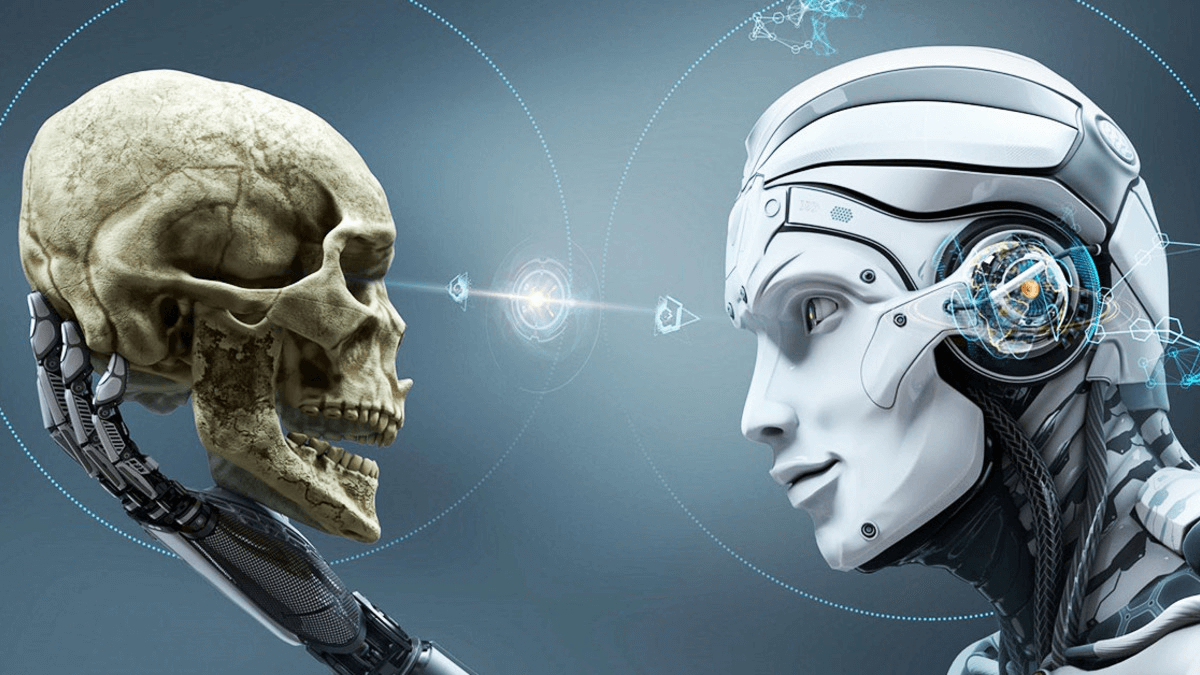
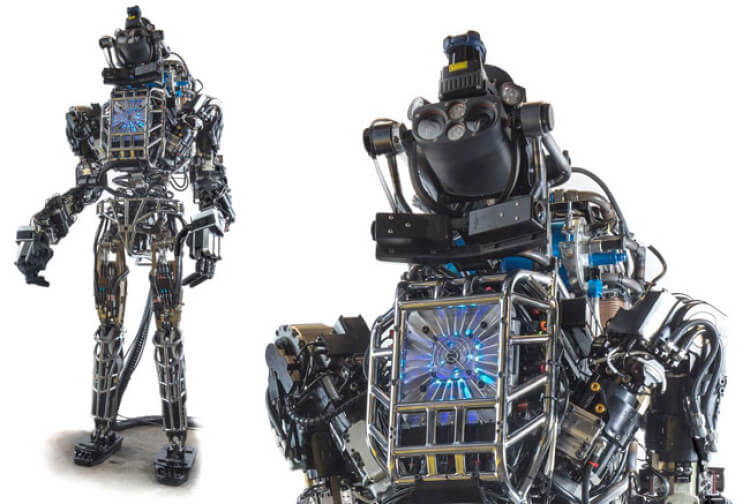


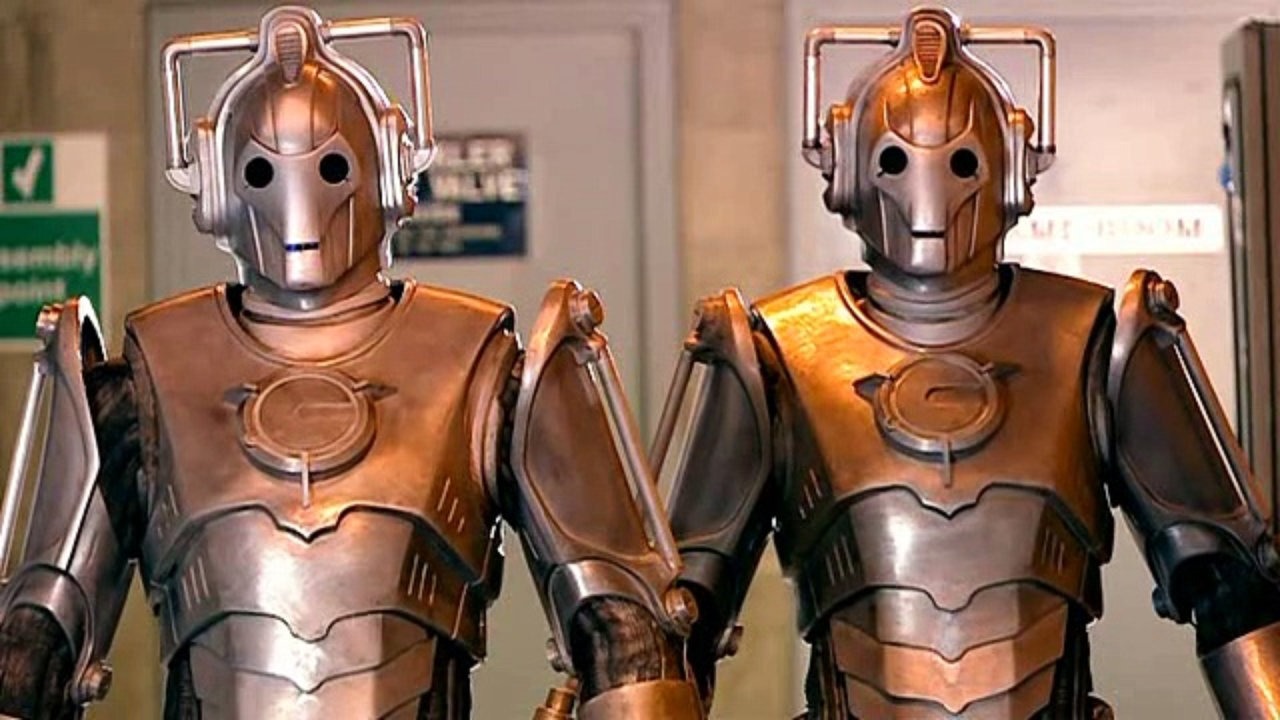
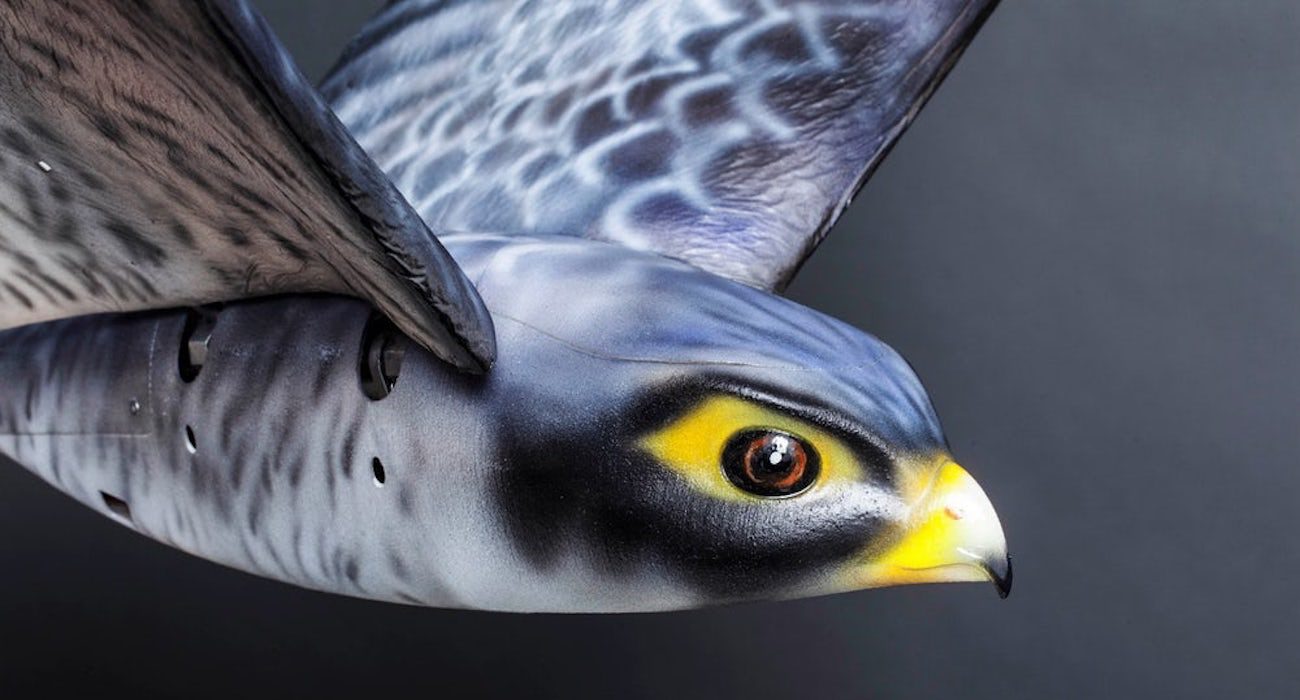
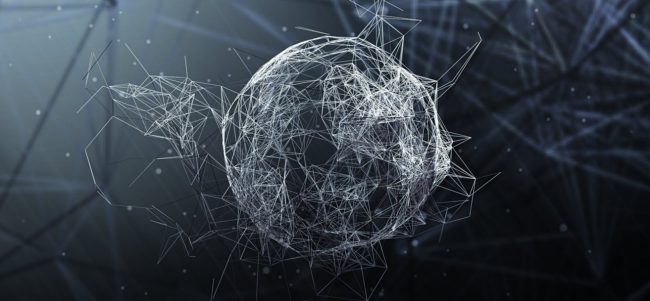

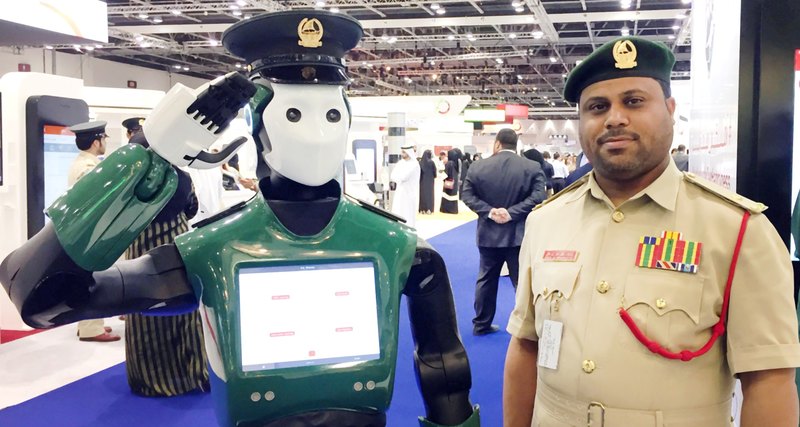
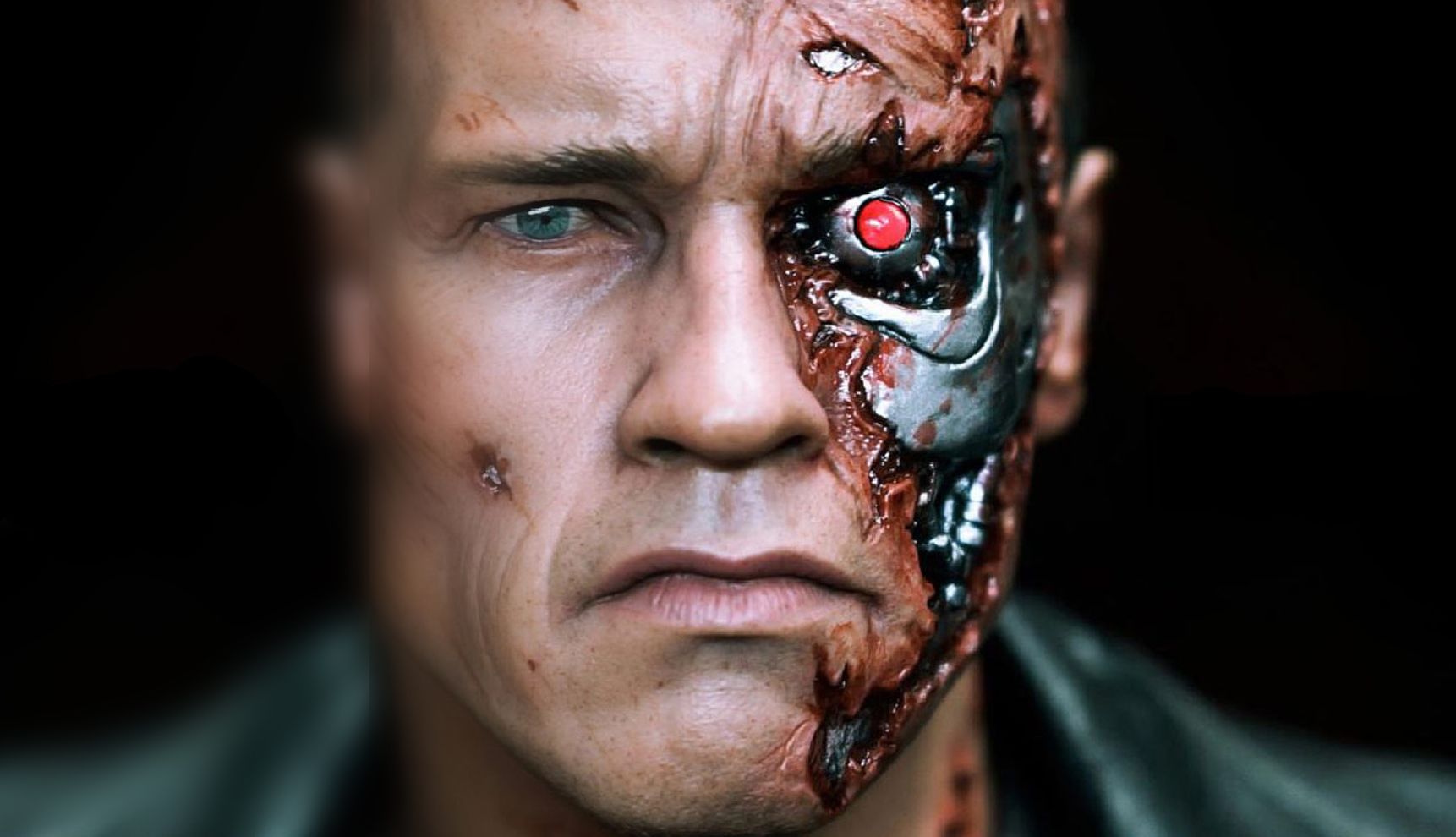
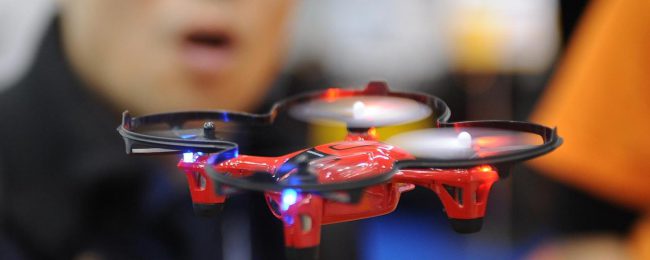
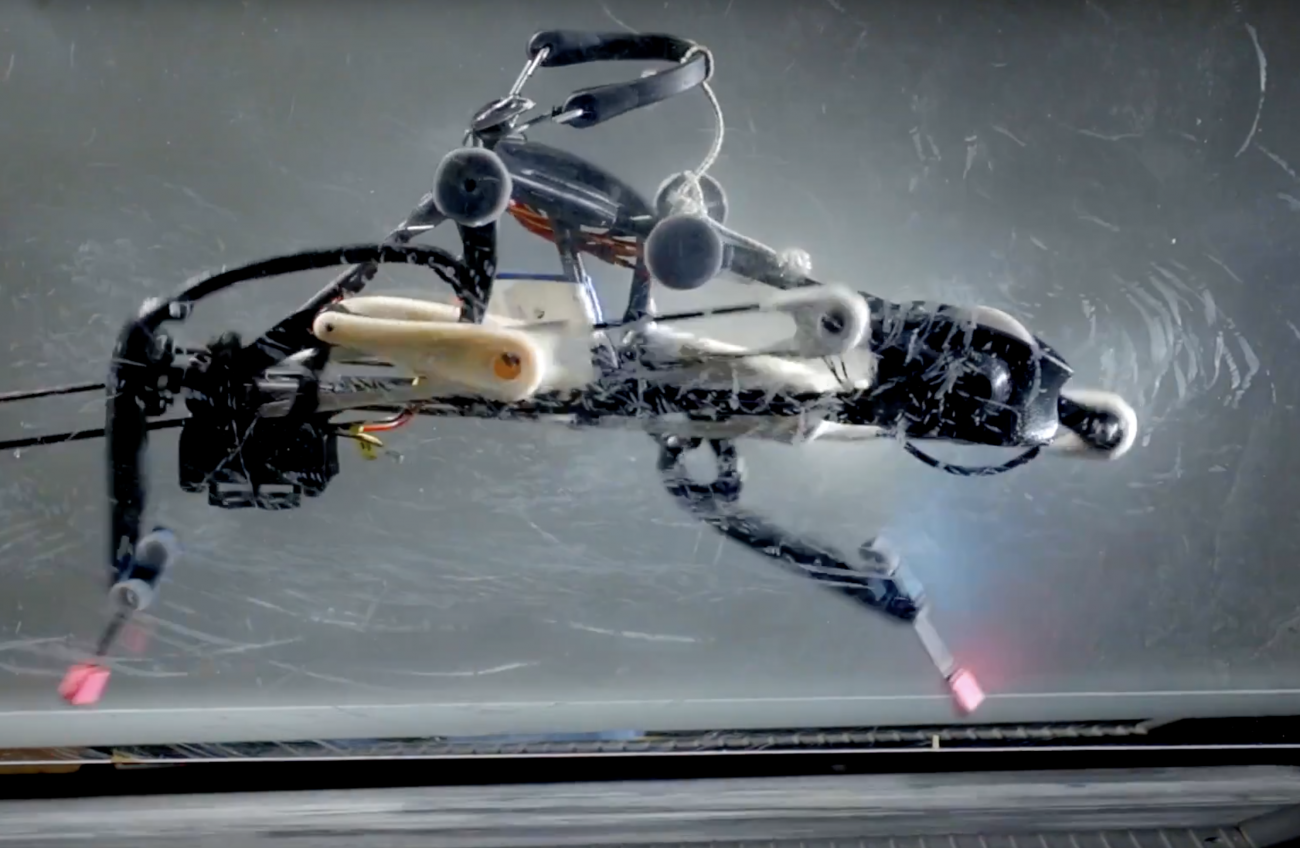
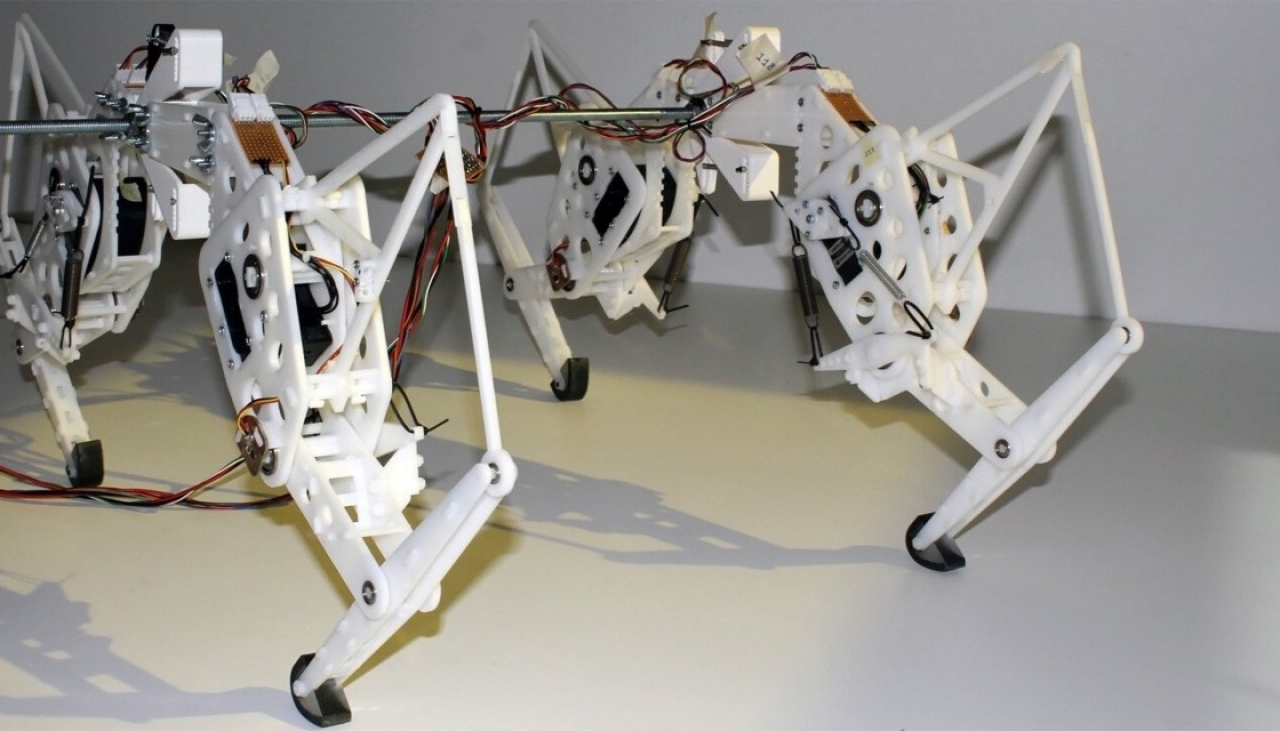
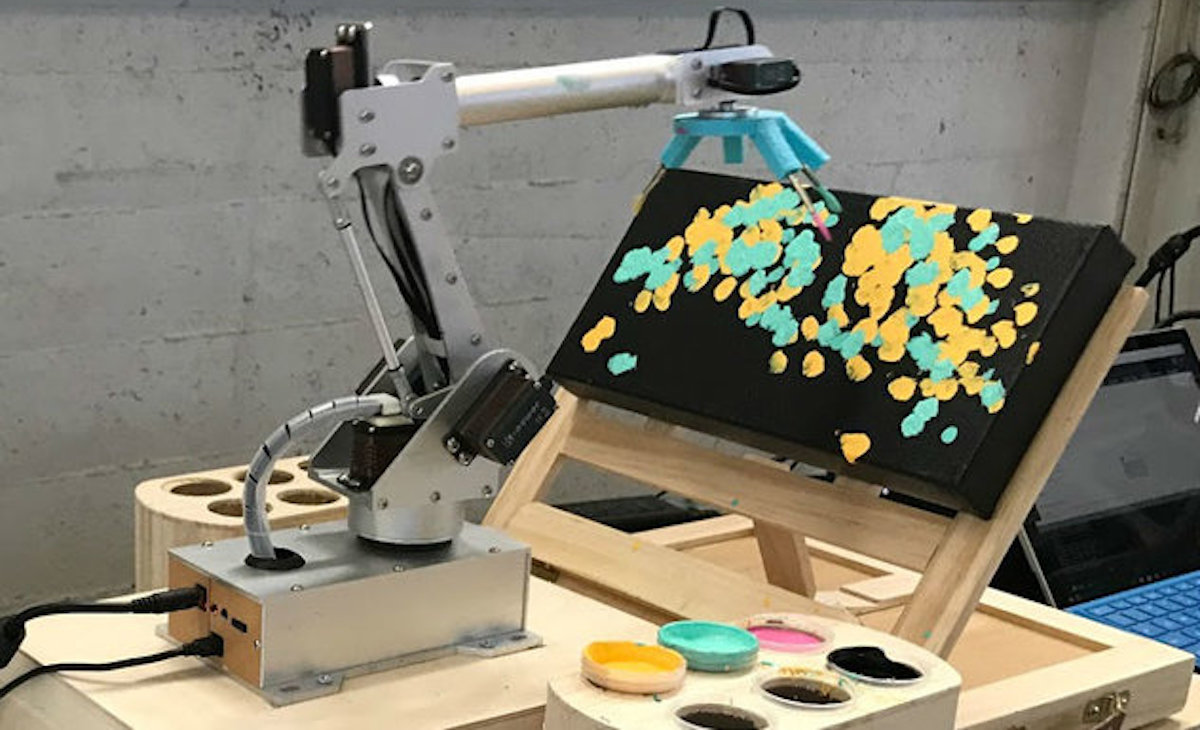
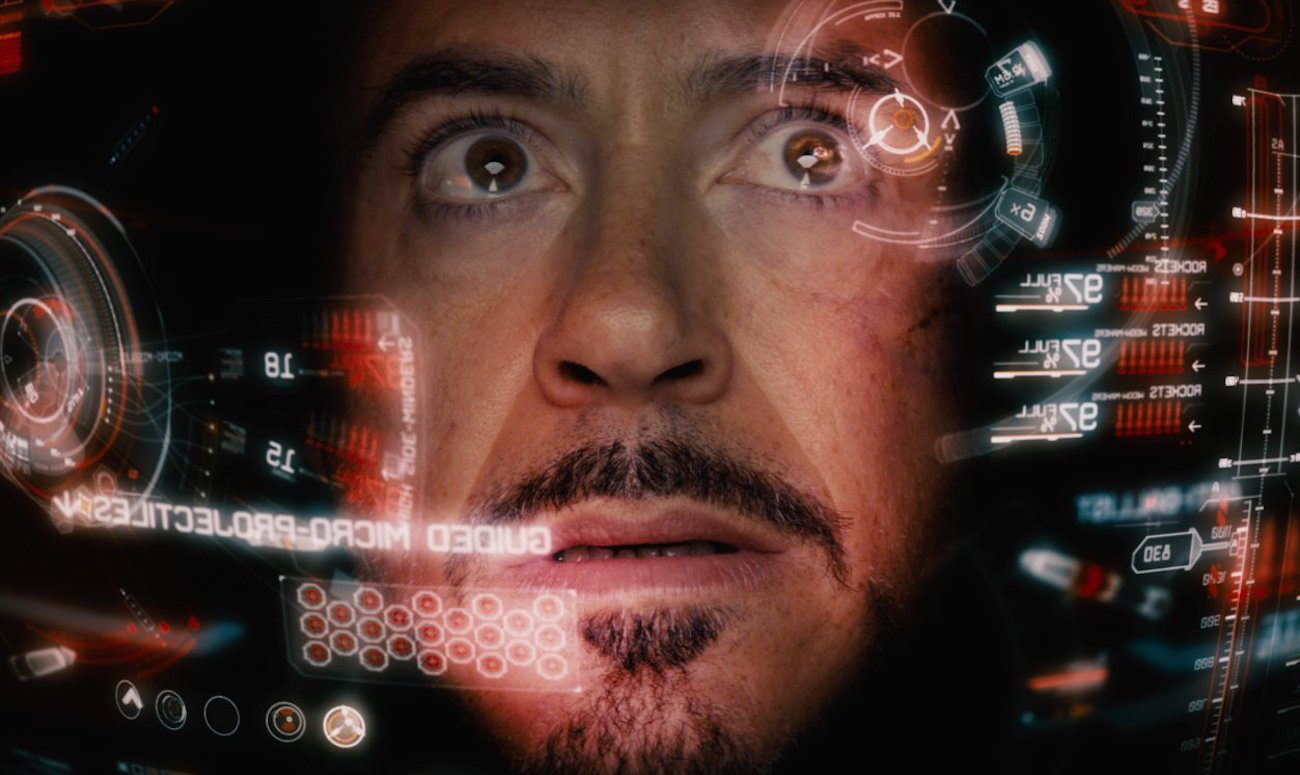

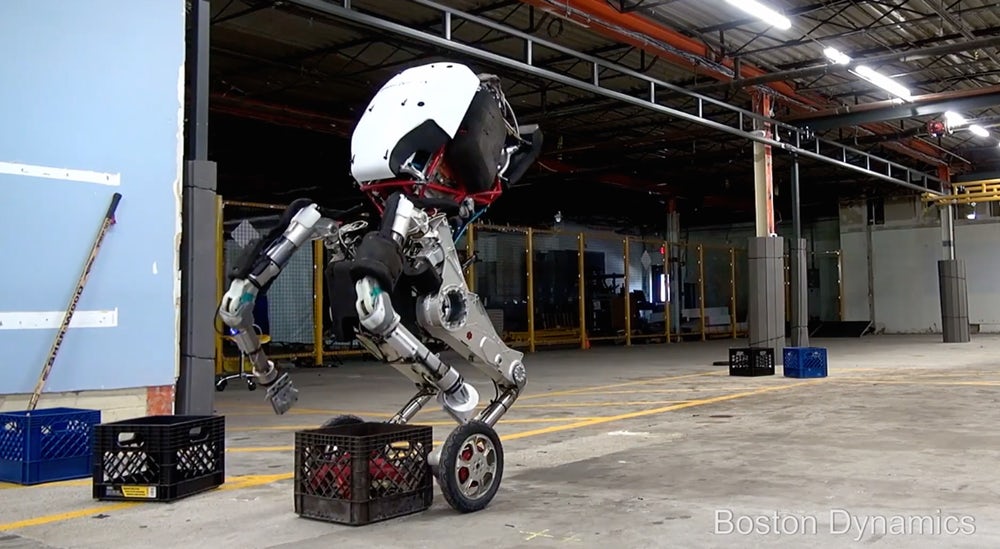
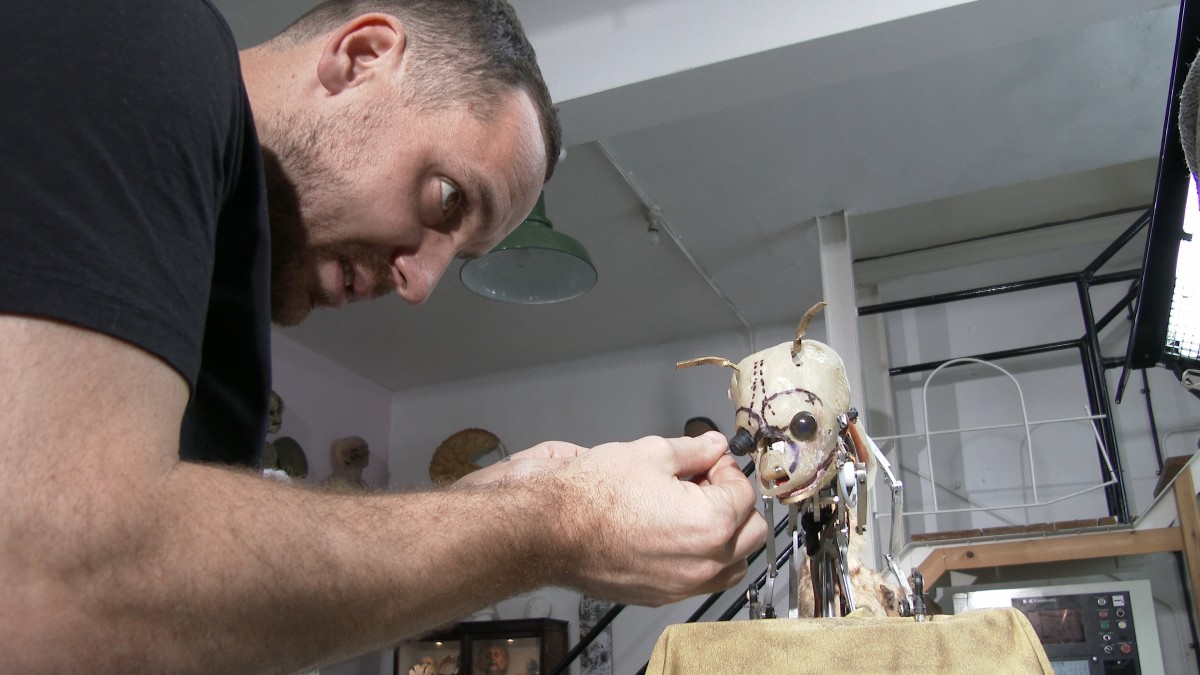
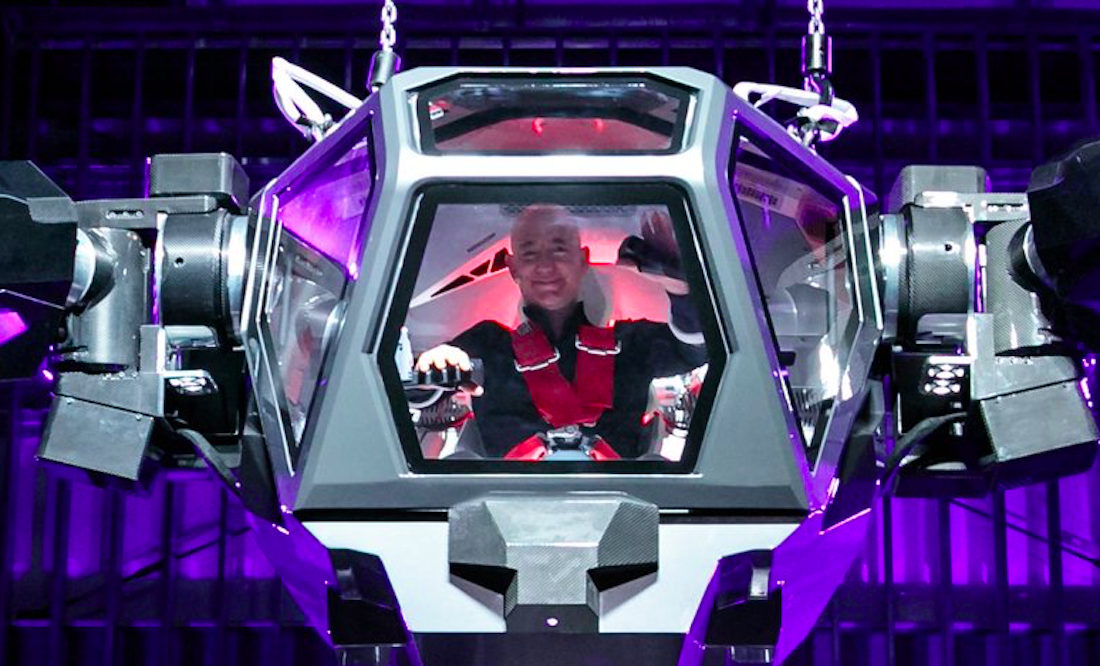
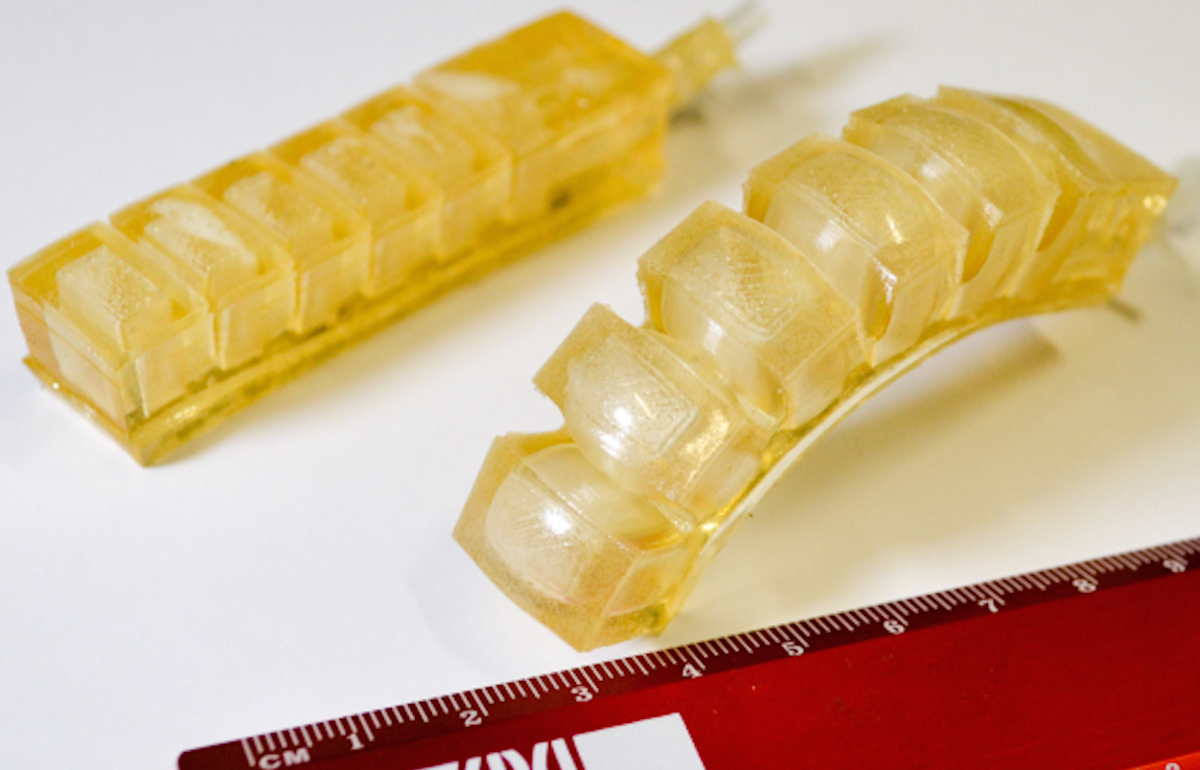
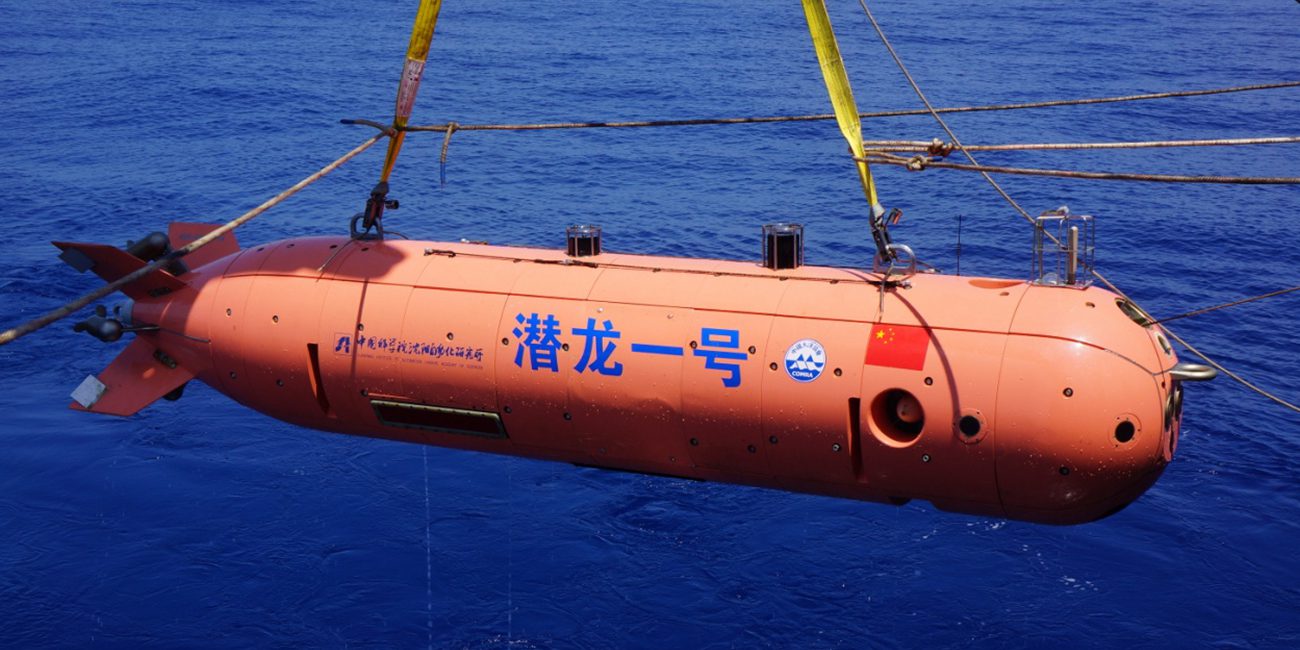
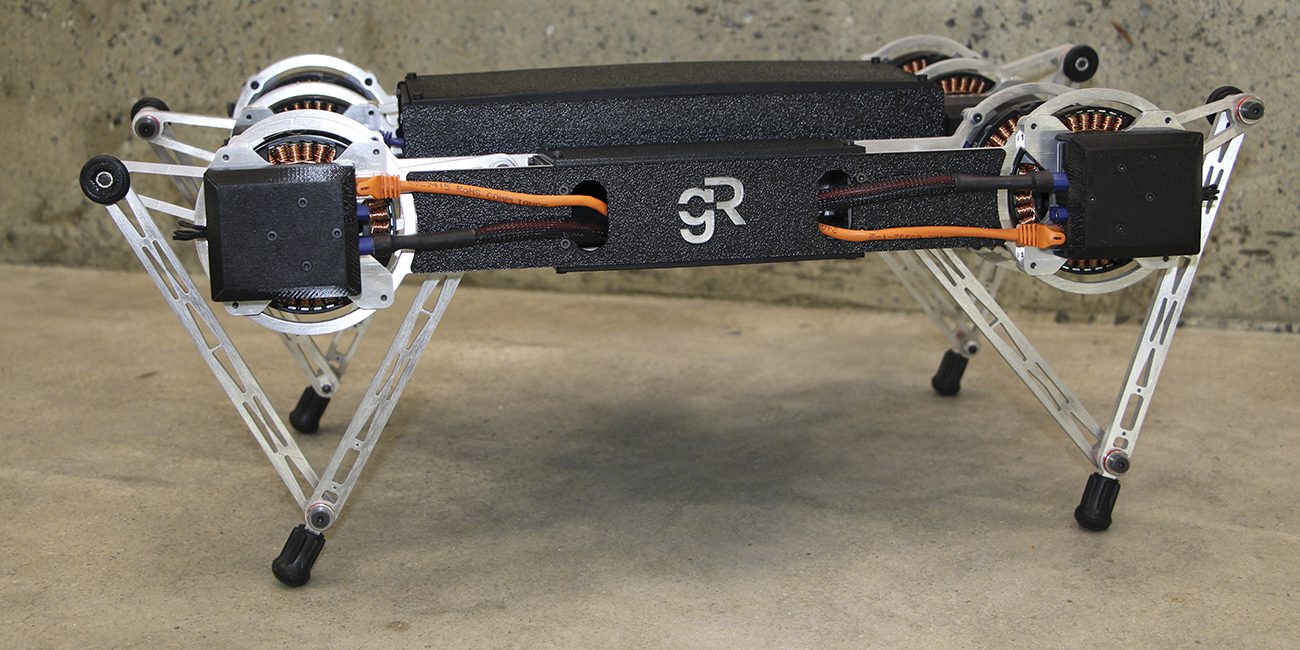
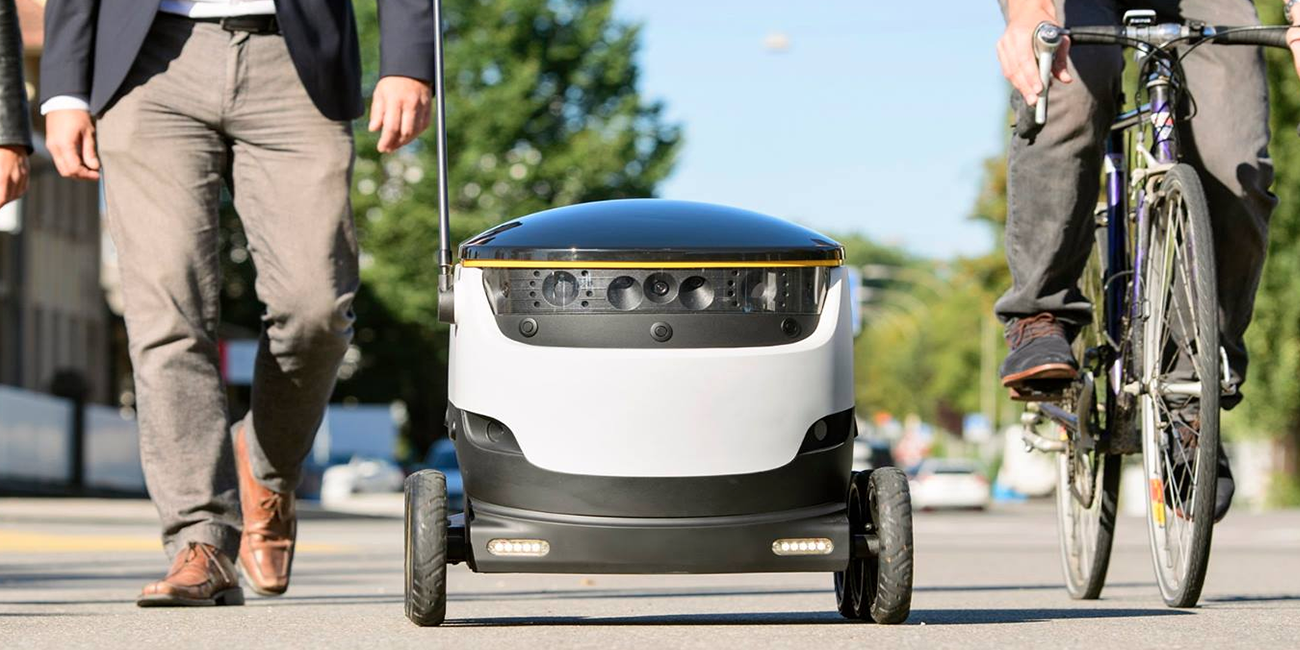
Comments (0)
This article has no comment, be the first!